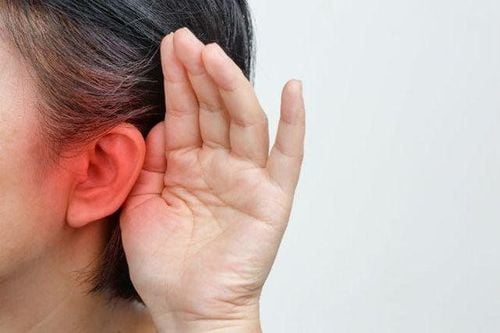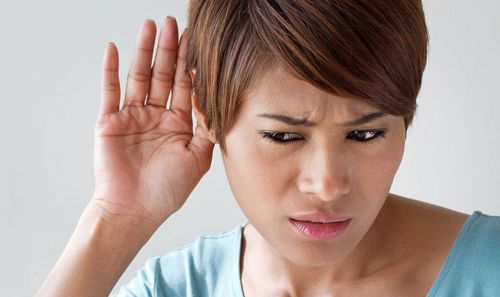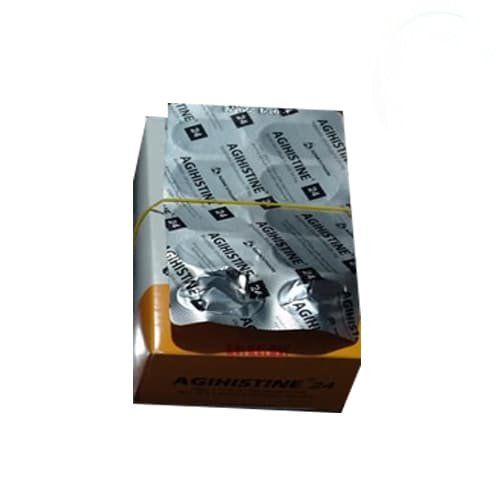This is an automatically translated article.
Vestibular neuritis is an inflammatory nerve disease in the inner ear, one of the rare diseases in otolaryngology, and the disease accounts for only about 0.01% of ear diseases.
1. Vestibular Neuritis
Vestibular neuritis is an inflammation of the nerves in the inner ear, causing the vestibular nerve to become infiltrated, damaging the sense of balance.
Vestibular nerve is formed from the part of the inner ear from nerve fibers, nerve fibers focus on the Scacpa ganglion at the base of the inner ear canal. From the Scacpa ganglion, the vestibular nerve bundle joins with the tuberculous nerve bundle and forms nerve VIII, which goes to the cerebellum, where the vestibular center is located.
Thus, vestibular neuritis causes characteristic balance disorders of the cerebellum accompanied by ear symptoms called post-labyrinthic peripheral syndrome.
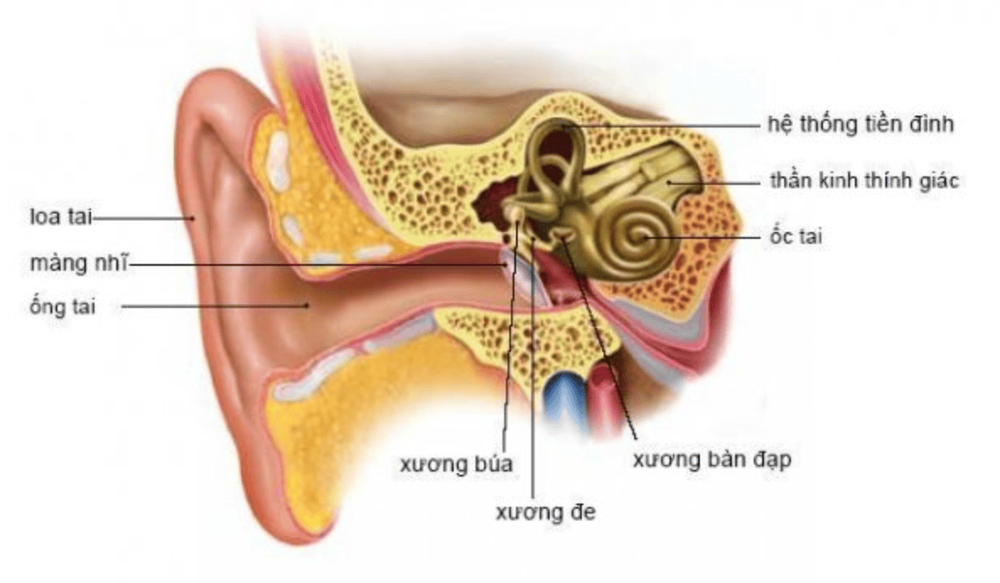
Hệ thống tiền đình
2. Causes of vestibular neuritis
There are many causes of vestibular neuritis, it can be caused by viral infections, bacterial infections,...
Due to syphilis spirochetitis causing labyrinthic neuritis: signs of dizziness and tinnitus occur turn into batches. Blood test was positive for syphilis. Cerebrospinal fluid examination showed increased protein and cells. Meningitis : the patient had dizziness, tinnitus... after the patient was diagnosed with tuberculous meningitis or meningococcal meningitis. Viruses: causing neuritis VIII such as influenza virus, mumps, shingles ... To find out the cause of the disease, one can look to identify some features to differentiate it from: mumps virus or mumps virus. cause isolated cochlear damage. shingles causes dissociated vestibular syndrome in which a decrease in excitability is observed on examination of vestibular functions. Some toxic substances such as tobacco, lead, alcohol, carbon monoxide, drugs... are also one of the causes of damage to the vestibular nerve.
3. Symptoms of vestibular neuritis
The vestibular nerve is part of the vestibular-cochlear nerve. Vestibular nerve assumes the role of sensing balance for the body, so when affected, the patient has common symptoms including:
Sudden severe dizziness, feeling of wobble, spinning Loss of balance Nausea, vomiting Difficulty concentrating Vestibular and cochlear neuritis are often closely related. Vestibular neuritis is damage to a branch of the vestibular cochlear nerve that affects balance. Cochlear neuritis affects the ability to hear. Symptoms of cochlear neuritis are similar to vestibular neuritis but with additional signs of tinnitus and/or hearing loss.
In general, the most severe symptoms such as severe dizziness only last a few days, but when acquired, the patient has a lot of difficulties in daily activities. After that, the severe symptoms gradually subsided, most patients recovered slowly but completely recovered after a few weeks. However, some patients may experience loss of balance and dizziness for several months.

Người bệnh có triệu chứng chóng mặt dữ dội
4. Diagnosis of vestibular neuritis
Diagnosis of vestibular neuritis by:
Hearing test Checking for signs of nystagmus, Magnetic resonance imaging with magnetic resonance imaging Diagnosing the cause of dizziness includes: hearing tests, checking signs nystagmus. Contrast-enhanced cranial magnetic resonance imaging should be performed to make sure symptoms are not caused by another condition, such as a brain tumor.
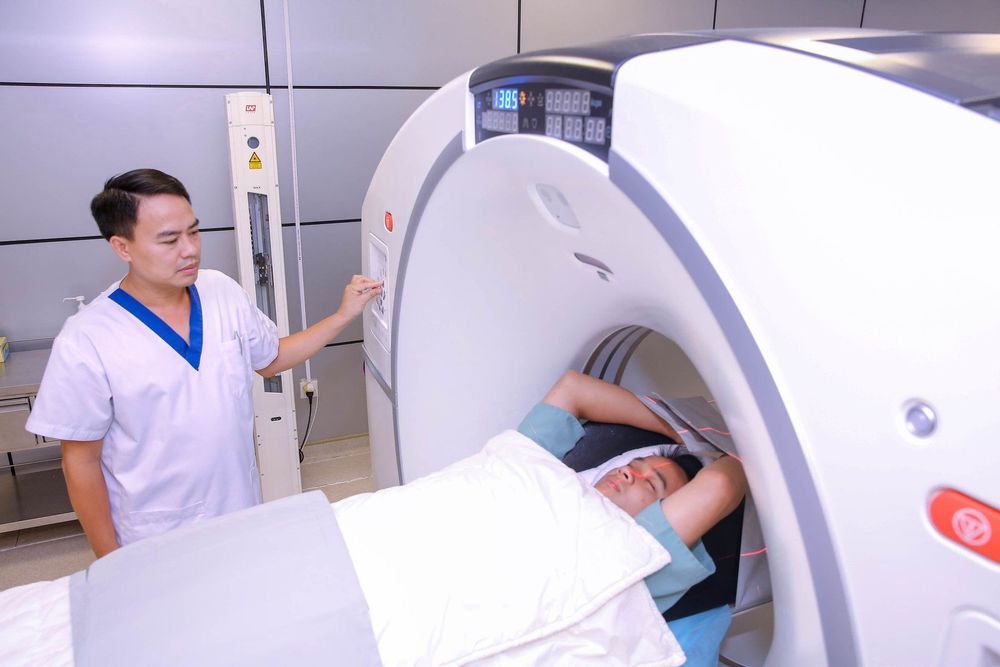
Chụp cộng hưởng từ sọ não giúp chẩn đoán bệnh
5. Treatment of vestibular neuritis
Dizziness can cause unexpected accidents, therefore, when treating vestibular neuritis, doctors will often give priority to treating symptoms first such as:
Treatment of dizziness with anti-inflammatory drugs dizziness eg: tanganin, sedation, increased oxygen for blood vessels, drugs to treat capillary dilation. Treatment of tinnitus: drugs to enhance cerebral circulation, sedation, vasodilation... depending on the cause of the disease. Treatment according to the cause:
Antibiotics, anti-inflammatory. If the syphilis test is positive, the doctor will prescribe anti-syphilis drugs Remove the poison if the cause is found to be toxic. Anti-allergy medication. Surgery if there is a cerebellar pontine tumor, a thick dissection of the meninges, or an auditory nerve tumor,... In addition, changing lifestyle and living habits can help patients reduce it. symptoms that vestibular neuritis causes such as:
Avoid dehydration when vomiting: drink a lot of water, divided into several times, drink a small amount each time. Rest, avoid falls, drive, use tools or machines, or do heavy work when you feel dizzy or out of balance Avoid alcohol Avoid bright light Try to avoid places that are noisy and stressful

Khi nghi ngờ mắc bệnh viêm dây thần kinh tiền đình, người bệnh nên đến gặp bác sĩ ngay để được điều trị sớm
Vestibular neuritis is an uncommon disease and the cause is often unknown. Fortunately, the disease can clear up on its own after a few weeks to a few months. While you wait for your illness to recover, follow your doctor's advice to avoid injury from a fall and help your vestibular return to normal soon.
Vinmec International General Hospital is one of the hospitals that not only ensures professional quality with a team of leading medical doctors, modern equipment and technology, but also stands out for its examination and consultation services. comprehensive and professional medical consultation and treatment; civilized, polite, safe and sterile medical examination and treatment space.
Customers can directly go to Vinmec Health system nationwide to visit or contact the hotline here for support.
MORE:
Meningococcal meningitis: Causes, symptoms, diagnosis and treatment How long does shingles cure? Optic neuritis: Causes, symptoms, complications




